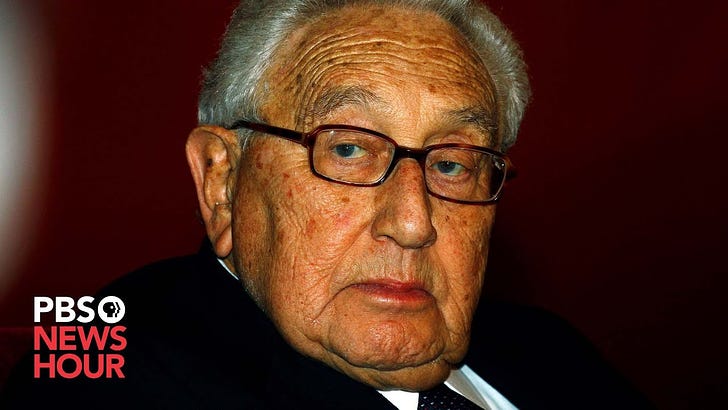'Grand Strategist' Henry Kissinger
Was his tenure as chief US diplomat really all that grand?
It is impossible to understand American foreign policy in the latter half of the 20th century and early 21st century without examining the life of Henry Kissinger. He is called a grand strategist, a realist, a pragmatist, who dealt with the world as it is, not as he wished it to be.
Kissinger’s record is exceedingly complex. Commentators who have simply dissed and dismissed him upon his death reveal more about their own shallow understanding of foreign policy than they do about Kissinger.
He focused on a bipolar and then a tri-polar world — big power politics among the big three empires: the United States, the former Soviet Union or Russia, and China. He cared little for countries outside the orbit of the big three, seeing them as pawns on a chessboard. He did not believe that morality or the principle of “universal human rights” should play a big role in American foreign policy. On the contrary, he believed rigid adherence to principles and even good intentions as opposed to a nation’s rank self-interest could lead to bad policies and disastrous consequences.
“Few people were better students of history — even fewer people did more to shape history than Henry Kissinger,” observed Secretary of State Anthony Blinken, diplomatically praising him without taking a stand on the various controversies of Kissinger’s career.
Born in May, 1923 in Furth, Bavaria, Germany, Henry Kissinger was a Jewish refugee to the U.S. in 1938.
He excelled academically and graduated summa cum laude from Harvard in 1950, went on to immediately earn a master’s degree and doctorate from Harvard, and become a political scientist, geopolitical consultant, national security advisor, and U.S. Secretary of State under Presidents Richard Nixon and Gerald Ford. He won a Nobel Peace Prize for his efforts to end American involvement in Vietnam in 1973, though the war did not end until 1975 with a very predictable ignominious defeat for the US. The treaty he helped negotiate in 1973 was similar to what the Vietnamese offered the U.S. in 1968 during the Johnson administration.
The positive and negative retrospectives continue to pour in. He was vilified in the 1970s by the left and the right. Liberals hated him for prolonging the Vietnam War, needlessly killing tens of thousands of Americans and Vietnamese in a prideful attempt to salvage what by 1971 to them was a lost cause.
Conservatives disliked him for engaging in detente with communists in Russia and China, for disarmament negotiations and SALT treaties with the Soviets, and for “giving away” the Panama Canal. People forget that Ronald Reagan, in his insurgent campaign against Gerald Ford for president in 1976, made opposition to Kissinger’s foreign policy a cornerstone of his campaign. (They “made up” in 1980.)
The conservative Wall Street Journal was critical of him in the seventies over détente and arms control with the Soviet Union, and for not containing Russian ambitions. Upon his death, a WSJ editorial praised him for “managing conflict in the Middle East in a way that reduced Soviet influence and negotiating an opening to Mao Zedong that pulled Communist China from the Soviet orbit….”
The editorial also claimed that Kissinger’s policy in Vietnam was correct. “Kissinger has long argued, rightly we think, that the South would have survived if Congress hadn’t abandoned support. And Lee Kuan Yew, the late leader of Singapore, often said that U.S. support for South Vietnam gave the countries of Southeast Asia the time to build resistance to Communists in their countries. They are freer today because of it.”
There are at least eight well-reviewed biographies of Kissinger and his complex legacy:
Keep reading with a 7-day free trial
Subscribe to Slender Threads / Global Citizens / Public History to keep reading this post and get 7 days of free access to the full post archives.




